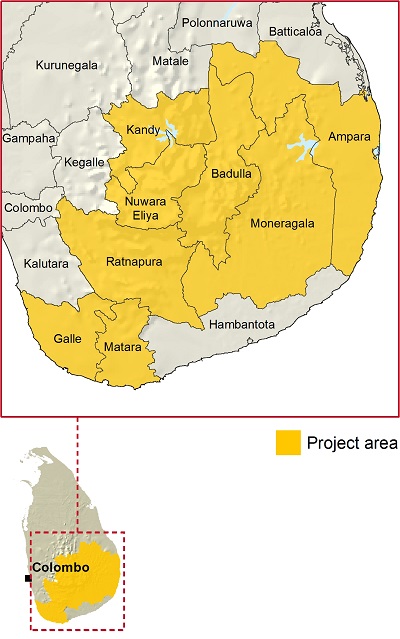Smallholder Tea and Rubber Revitalization Project
IFAD Asset Request Portlet
Agrégateur de contenus
Smallholder Tea and Rubber Revitalization Project
Poverty is primarily a rural phenomenon, and 80 per cent of Sri Lanka's population resides in rural areas. The government's strategic direction for agriculture is to achieve a sustained improvement in production through increased productivity and market competitiveness.
The project aims to improve food security, increase incomes and strengthen the resilience of poor rural people in Sri Lanka. It seeks to ensure that smallholders' economic activities in tea and rubber become more productive, profitable and resilient. This IFAD-funded project will benefit approximately 32,000 smallholder households.
The project will achieve its objectives by:
- Promoting better organization among smallholders to effectively and sustainably produce and market tea
- Supporting smallholders as they improve rubber production and processing, and seek better link to markets
- Facilitating smallholders' access to rural financing for both green tea and rubber production and development
The project area will cover eight districts in central and southern Sri Lanka: Badulla, Galle, Kandy, Matara and Nuwara Eliya for tea cultivation; Ampara and Moneragala for rubber cultivation; and Ratnapura for tea and rubber processing.
The project will ensure that smallholders are the key decision-makers in project activities. A "value chain" approach will be adopted, in which relevant activities will be identified and links made along the commercial chain from production to processing to marketing.
The project's support for tea replanting and intercropping is meant to increase yields from tea as well as from appropriate inter-crops such as pepper. On average, a household's production benefits are expected to increase by almost fivefold. Smallholders planting rubber will be able to benefit from a steady income from latex. The project will also contribute to institutional sustainability at the village level by strengthening tea and rubber cooperatives and linking them with private sector partners.
